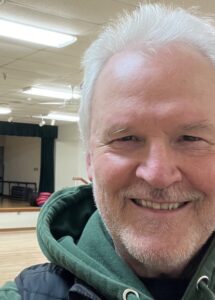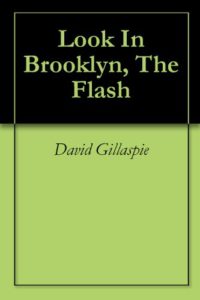She Tells Her Truth, The Writer’s Truth, Inside The Old Church.
What do you buy a know-it-all for Christmas?
Not an encyclopedia.
What do you give a writer? A membership to the Willamette Writers always works.
If that was a present to the writer in your life, then the first Tuesday in January would have been their first meeting.
They would have heard Jill Kelly.
If you attended the meeting you would have heard her, too. You don’t need to be a writer to appreciate what she had to say.
To begin, she explained the difference between writer groups, as in Critique Group and Support Group.
Critique groups work to make you a better writer. From a bootcamp approach that breaks your work down to make it better, to piranha style where everyone takes a bite, she’s not a fan.
What works for her is a Support Group. In this setting you’re not surrounded by grammar Nazis or content bullies. Instead, it’s a group limited to two responses. Members may say:
- Where I got lost…
or,
- Where I want to know more…
Boomerpdx liked her right away. Those of us on the far side of youthful innocence don’t need a new jailer rattling our cages. We’ve rolled over enough bumps that threw us off track, waded enough mud puddles too deep for our boots.
If that’s how you feel too, then Jill was speaking your language. She turned her hour presentation, the same hour every Willamette Writer speaker gets each month, into a support group everyone in the house needs.
They may not know it, but they need it.
See, writing is more than knowing the alphabet, knowing which letters mash up against others to make a sound called language. Some readers want something useful, something they can apply. They like How-To books, stories of forgotten history.
These readers are Know-It-Alls who want to add to their arsenal.
Other readers open a book to feel something. Word of mouth brings them a book that impacted their friends. These readers seek the sorrow, the happiness, the regret that characters in novels drive into them.
They want to learn how to deal with feelings, or at least see how others did it.
What made Jill Kelly different is she’s a know-it-all and a spirit in search of feelings. And she hasn’t forgotten much.
Isn’t everyone with a PhD a know-it-all? Jill’s Phd is in literature. After teaching college for twenty years she knows more about more things then she’ll ever get credit for. A Phd is the end of the line for academics, unless they get two of them.
What you do with it afterward tells who you are. She was a teacher with a writing dream talking about books and authors instead of authoring books.
Then she hit her inspiration, otherwise known as sobriety, and she wanted to tell her story. Now you understand why she didn’t want a Critique Group. She knows the mechanics of writing probably better than any group going. No spoon fed bitterness from a failed Lit-star for her.
Searching for her voice, yes. Getting run over by a hack who dropped out of junior college WR 121 because it was too structured, no.
Like many baby boomers, she didn’t spend lots of time with her parents and grandparents while they told stories about their lives. That loss pressed down on her to tell her story. If you’re in the same group of those who left home early, or had parents and grandparents who didn’t tell their stories, it should press on you too.
Modern culture looks at the past and the oral traditions of the times and call them backward, uneducated, even ignorant. But they miss the most important part. They were people who knew who they were and where they came from.
That’s lost today where we plant shallow roots and pull them up at a moment’s notice, where television is the common denominator for family history, not grandma and grandpa. We look back at the Waltons and Little House On The Prairie for family stories.
Or, we re-invent history by starting over, believing who we are today has no reflection on who we’ve been.
Jill Kelly believes in the magic of silence and the power of shared effort, writers writing together toward a common goal: Finishing projects. Instead of the goal of publishing their work, it’s finishing their work. You can’t publish if you don’t finish things. So simple, yet so hard, like all good ideas.
You can’t fill up two thousand pages and call it good like Thomas Wolfe. Max Perkins isn’t walking through your door any time soon to fix your work for you.
Toward the end of Jill’s talk, she said something similar to what Zane Kesey credits to his dad, Ken Kesey. Zane said his old man was driven to do something everyday that made it different than the day before. Jill was similar when she said her writing schedule meant showing up and making something matter.
What matters? Be creative. Do something, write something, build something. Your good creative energy balances the bad energy in the world where evil lives. Those are my words, or my memory of what Jill said. Either way, boomerpdx carries the same truth.
What are you doing today?



